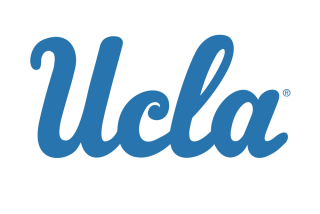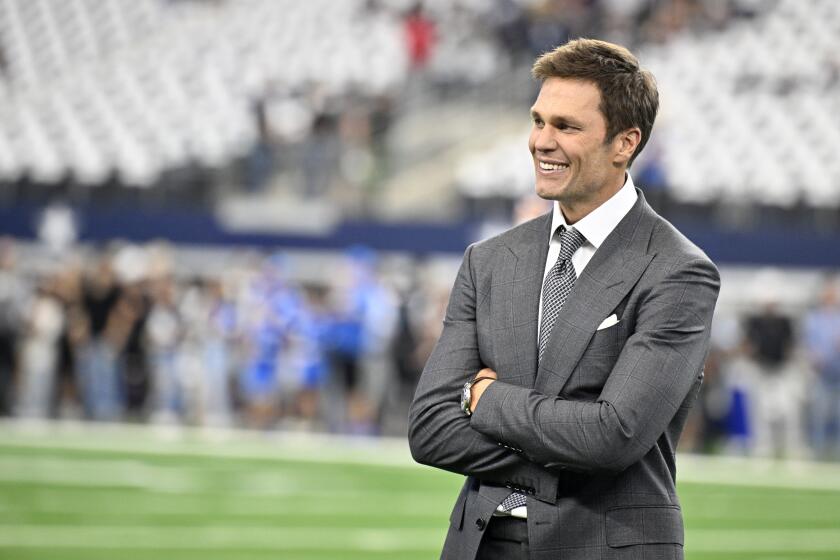NCAA Charges Against UNLV Called Major : College basketball: Preliminary inquiry of national champion has been completed, source says.
The NCAA has completed its preliminary inquiry of the Nevada Las Vegas basketball program and is expected to lodge charges of major rules violations against the national champion Rebels, according to a source familiar with the inquiry.
NCAA enforcement officials have prepared a list of charges and could send it to the university in a matter of weeks, according to the source, who asked not to be identified.
Although UNLV coaches and officials have said they believe the inquiry, which stems from UNLV’s recruitment of former New York high school star Lloyd Daniels, has uncovered only minor violations, the source characterized some of the allegations as “major” in nature.
NCAA enforcement guidelines distinguish between secondary infractions, those that provide only a limited recruiting or competitive advantage, and major infractions, those that provide an extensive recruiting or competitive advantage. Repeated secondary violations can also be viewed as a major violation, according to NCAA rules.
Minimum penalties for a program cited by the NCAA for a major violation include a one-year ban on postseason play and television appearances.
In UNLV’s case, such sanctions would strike a damaging blow to the financial condition of the school’s athletic department, which netted about $1.5 million in television and NCAA tournament revenue from the Rebels’ championship season.
David Berst, the NCAA’s assistant executive director for enforcement, declined to comment on the status of the UNLV case Friday except to describe it as “pending.”
Brad Rothermel, UNLV athletic director, who announced June 13 that he will resign at the end of the year, reiterated his view that UNLV is facing charges of secondary rules violations only.
“I’m still not aware of a major infraction,” he said, “but your sources might be better than mine. From my conversations--the ones among those of us who have been involved in the process--I’m not aware of possible major infractions.”
When the list of charges--known, in NCAA terms, as an official inquiry--is delivered to UNLV, school officials will have 60 to 90 days to prepare a response for the NCAA Committee on Infractions. After a hearing, the committee will rule on the allegations and determine penalties, if necessary. The committee has such a heavy backlog of cases, however, that the UNLV case might not be decided until the 1990-91 season has ended.
The university is currently waiting for the committee to decide what, if any, penalties should be imposed as a result of the resolution of the legal battle between Coach Jerry Tarkanian and the NCAA that resulted from a 1977 infractions case against UNLV.
In that case, the NCAA barred the Rebels from postseason play for two years and ordered the school to suspend Tarkanian for the same amount of time or “show cause” why additional penalties should not be imposed on the school. Tarkanian, claiming his constitutional right of due process had been violated, obtained district court injunctions in Las Vegas against both UNLV and the NCAA preventing any action against him.
The case went to the U.S. Supreme Court, which ruled, 5-4, in favor of the NCAA in December of 1988. An agreement between the parties three months ago allowed Tarkanian’s injunction against UNLV to stand but lifted his injunction against the NCAA, sending the case back to the Committee on Infractions for review of the “show cause” order. Tarkanian and school officials met with the committee June 23.
The current inquiry, initiated by the NCAA in October of 1987, was prompted by a series of stories in Newsday detailing ways in which UNLV coaches, boosters and other representatives of the school apparently broke NCAA rules in their dealings with Daniels, who was considered the best basketball player to come out of New York in two decades. Daniels signed a letter of intent to play at UNLV in April of 1986 but was barred from playing for the Rebels by Tarkanian after being arrested on drug charges.
The Newsday series showed how Daniels, who dropped out of high school after his junior year, received a variety of special privileges--including cash, a car and a motorcycle--while attempting to become eligible to play for the Rebels. Many of the allegations focused on Mark Warkentien, a UNLV assistant coach at the time, who became Daniels’ legal guardian while Daniels was attending Mt. San Antonio College in the fall of 1986. Warkentien is currently an assistant to Rothermel involved in monitoring rules compliance for the basketball program.
Investigators have also looked at a series of allegations unrelated to the Daniels matter, including a report by The Times last February describing how former UNLV star Anthony Jones drove a sports car belonging to a UNLV booster while he was playing for the Rebels.
Another area under scrutiny is UNLV’s academic support program for athletes. Specifically, investigators have sought to determine whether or not UNLV basketball players received tutoring provided by the university before they enrolled. NCAA rules do not allow a school to pay educational expenses for an athlete before the athlete’s enrollment.
Shelley Fischer, an academic adviser for the UNLV basketball program, was recently assigned to another area of the university for reasons related to the NCAA inquiry, according to a university official. The official, who asked not to be identified, declined to be more specific. Brad Booke, assistant general counsel for the University of Nevada System and acting director of compliance for UNLV athletics, declined to comment when asked about Fischer’s move except to say, “NCAA rules ask for confidentiality, and we’re a law-abiding university. So we’ll abide by those rules.”
Fischer, currently working in the university’s office of alumni affairs, said it would be “untrue” to link her job change to the NCAA inquiry, but declined further comment.
The inquiry apparently did not figure into Rothermel’s decision to resign after 10 years as UNLV’s athletic director, but the case has raised questions about his handling of the Daniels guardianship and other matters.
In one instance, the inquiry has uncovered evidence indicating that UNLV might have certified its compliance with NCAA rules in 1986 with a document that had been altered to delete the name of a staff member who refused to sign it.
NCAA rules state that coaches and support personnel are required every year to sign a form certifying that they have reported any knowledge of NCAA rules violations during the previous academic year to the university’s chief executive officer. After coaches and support personnel sign the form, the athletic director also signs it, and that form and another signed by the CEO are sent to the NCAA.
According to testimony obtained by investigators, a former academic consultant for the UNLV basketball program, Ann Mayo, declined to sign such a form at the end of the 1985-86 academic year, a time when she was affiliated with the basketball program.
According to the testimony, Mayo declined to sign the form when asked to do so by Beverly Drake, Rothermel’s secretary at the time, and suggested to Drake that Rothermel follow up personally. Mayo did not hear from Rothermel, according to the testimony, and later was told by Drake that Rothermel had used correction fluid to cover the line on the form where Mayo’s name had been typed.
UNLV’s NCAA certification of compliance form for 1985-86 does in fact show a blank space where Mayo’s name would have been listed alphabetically, according to sources.
Drake, currently working as a secretary in UNLV’s athletic training department, said she told the NCAA that Rothermel told her he covered Mayo’s name on the document because she was leaving the department.
Mayo, currently an assistant dean in the UNLV College of Business and Economics, did not leave her post in the athletic department until the summer of 1987, however.
Rothermel said he learned of the matter only after being asked about it by NCAA investigators. After being questioned generally about his handling of compliance forms, Rothermel said, he checked athletic department records and saw that the 1985-86 form did not include Mayo’s signature. He said he subsequently told the NCAA that he could not recall the circumstances surrounding the Mayo situation.
“I still don’t recall why Mayo’s name was deleted,” Rothermel said this week. “The reasons Ann didn’t sign might lead to a major violation. But the fact that she didn’t sign, I don’t think that’s a major violation.”
Mishandling a compliance form could, however, demonstrate a lack of institutional control in an athletic department, according to Rick Evrard, NCAA director of legislative services, a problem that he described as “something more than secondary in nature.”
Efforts by The Times to reach Mayo were unsuccessful.
More to Read
Go beyond the scoreboard
Get the latest on L.A.'s teams in the daily Sports Report newsletter.
You may occasionally receive promotional content from the Los Angeles Times.










